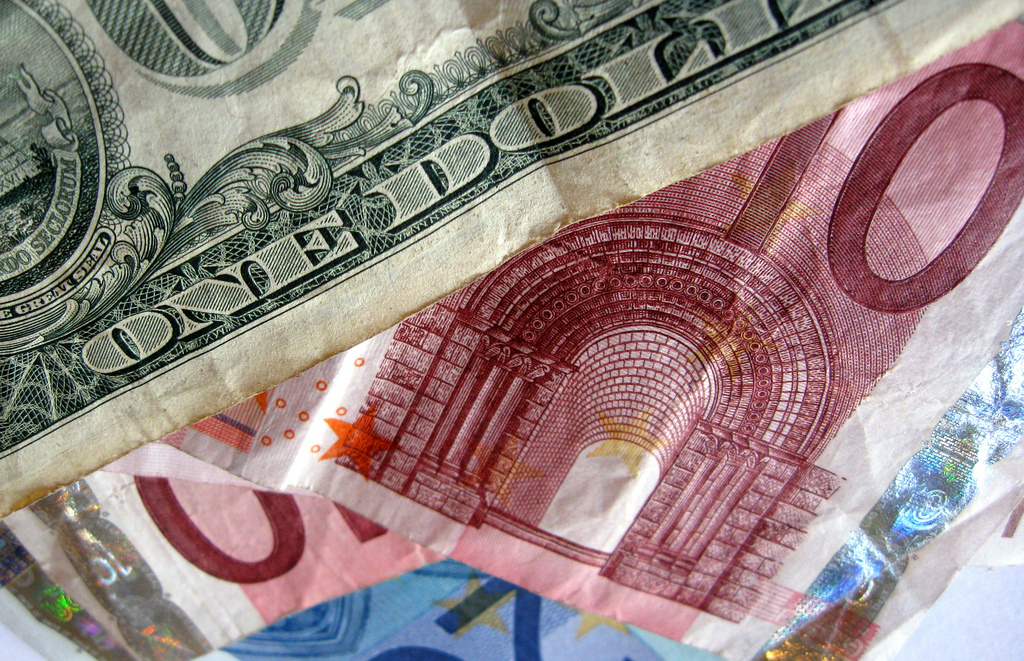Monex: EUR/USD verder onder druk
Monex: EUR/USD verder onder druk

Hieronder volgt een commentaar in het Engels van Ranko Berich, Head of Research bij Monex Europe op de Amerikaanse dollar, euro en het Britse pond.
USD
The US dollar remained well bid yesterday and has continued to strengthen against most major currencies overnight, despite the release of historically bad initial jobless claims data, and amid yet more verbal intervention in crude oil markets by President Trump. More than 6.6 million people made initial jobless claims last week, after more than 3.3m claims previously. The sheer size and speed of the increase in unemployment are utterly unprecedented: during 2009 the highest weekly jobless number was 665,000, roughly one-tenth of last week’s job losses. A simple back-of-the-envelope estimate of the approximate amount of gross domestic product lost is 1% per 1% fall in employment. Using this simple guess, over the past two weeks US employment has fallen by about 6% of the total workforce - suggesting an approximately 6% drop in gross domestic product. The entire 2008-2009 recession saw US GDP fall by less than 4%. Donald Trump continued his extraordinary efforts to support crude oil prices yesterday, by claiming that Saudi Arabia and Russia would cut oil output by 10-15 million barrels. Russian officials were quick to deny that Putin and the crown prince of Saudi Arabia had spoken. The Dow Jones news wire quickly reported that Saudi Arabia would be expecting other oil-producing nations including the US, Canada, Mexico and others to join any potential production cuts. Although at this point it seems foolish to rule out any outcome, the prospect of free-market economies like the US and Canada joining OPEC in cartel behaviour to restrict supply and boost prices seems slim. Trump is reportedly meeting oil industry leaders today, and it is unclear how he hopes to persuade them to reduce production. In the event he succeeds, it will be up to Saudi Arabia and Russia to decide if whatever is offered is enough to bury the hatchet and end their ongoing price war.
EUR
The euro extended its losses against both Sterling and the dollar with global coronavirus cases exceeding 1 million and no end in sight to the containment measures that brought the eurozone economy to an abrupt halt. German Finance Minister Olaf Scholz told broadcaster ARD on Thursday that he is open to offering Italy and Spain European Stability Mechanism aid, without requiring the same fiscal consolidation conditions used in the global financial crisis. Italian Prime Minister Giuseppe Conte wrote in a letter to la Repubblica on Thursday that collective measures are needed to help countries including Italy, and that Europe needs bolder solutions than what has so far been proposed. Eurozone ministers are expected to hold another video conference on April 7 in an attempt to forge an economic virus response. This morning, German business confidence from IFO indicated a reading of 87.7, compared to the prior 96.1. Survey respondents are also asked about their expectations for the coming 6 months, which printed 82.0 compared to 93.4 in February. The all-time record low for German business confidence printed only 2 pt lower at 80.0 in March 2009.
GBP
Sterling was once again out of the global spotlight yesterday and weakened slightly against the US dollar. The euro’s own more significant losses against the greenback meant that the pound once again found itself strengthening against the single currency on a relative basis. The Treasury announced another loan scheme aimed at supporting businesses yesterday, after an array of similar measures have been deployed for larger businesses. The new scheme, called the Coronavirus Large Business Interruption Loan, will allow companies with a turnover between £45m and £500m access to emergency lending guaranteed by the state. Chancellor of the Exchequer Rishi Sunak said that £90m of loans had been distributed to small businesses and £1.9bn to large under previously announced loan guarantee schemes. This morning’s main data release was the final march release Markit’s services purchasing managers index, which fell to 34.5, even worse than the dismal initial reading of 35.7. Consistent with other emerging data, the release underlines the fact that the coronavirus shock will likely be the sharpest contraction in UK economic activity on record.










